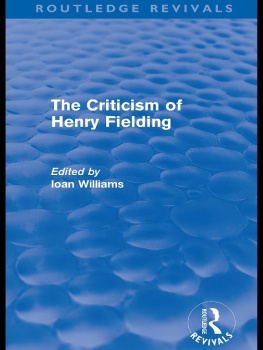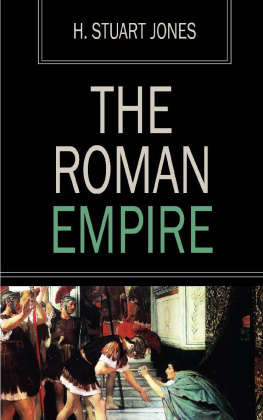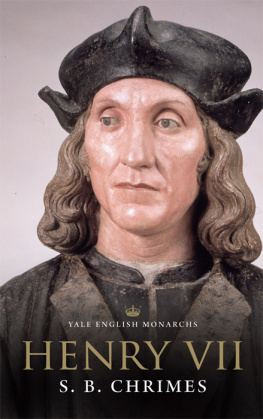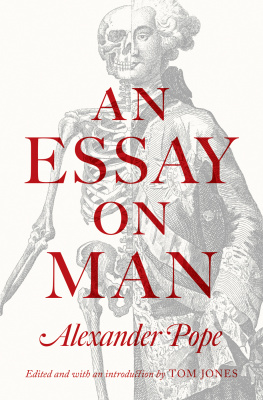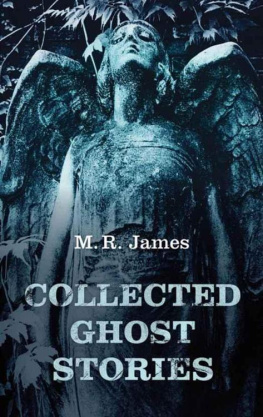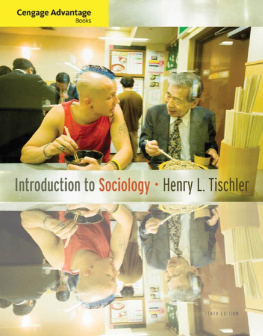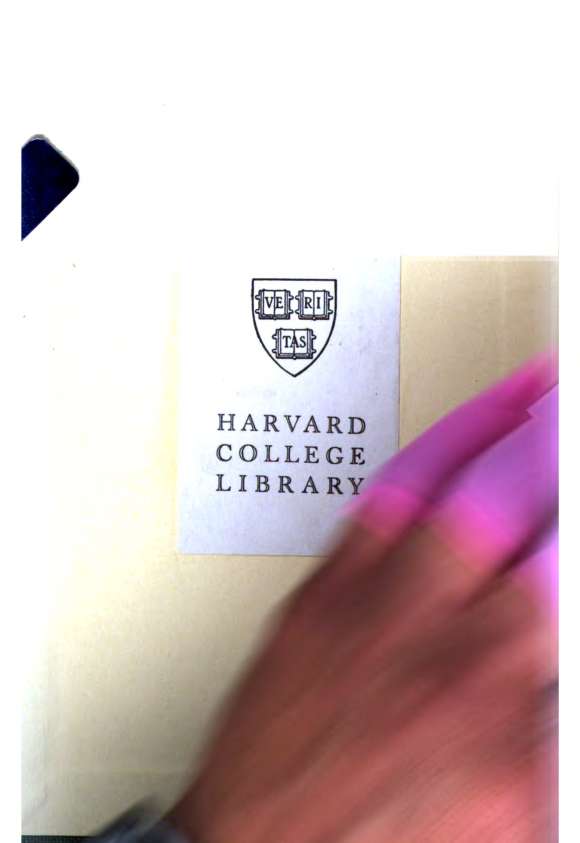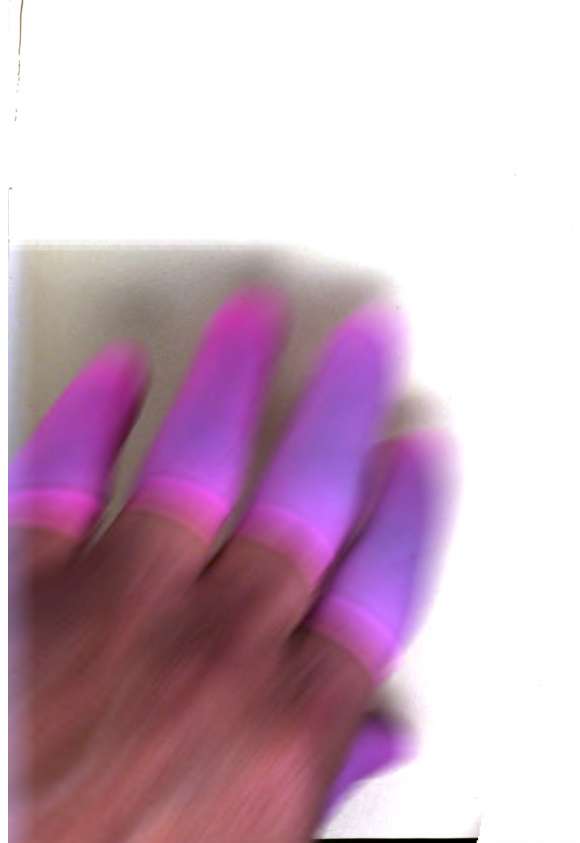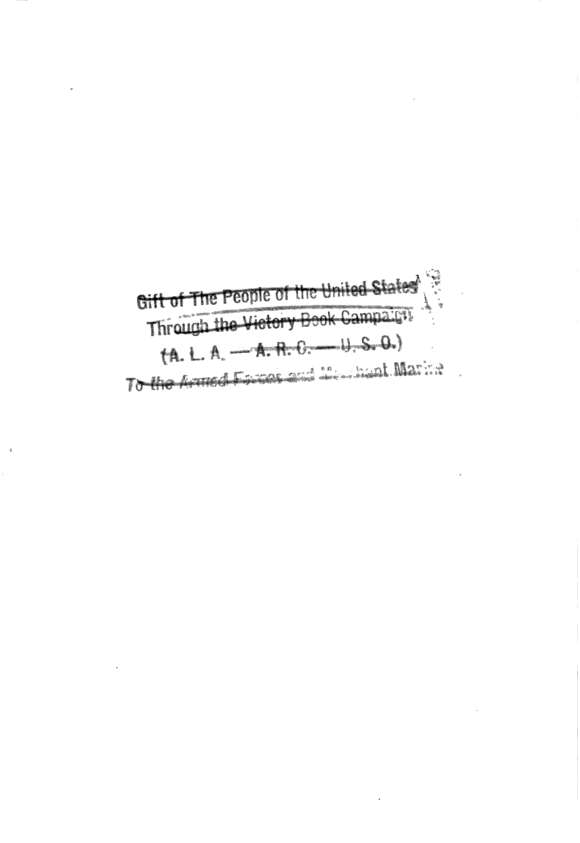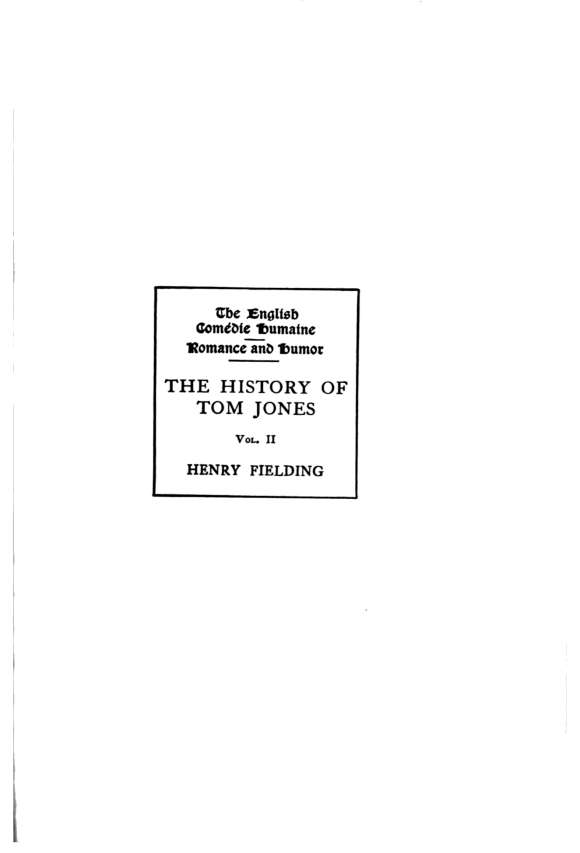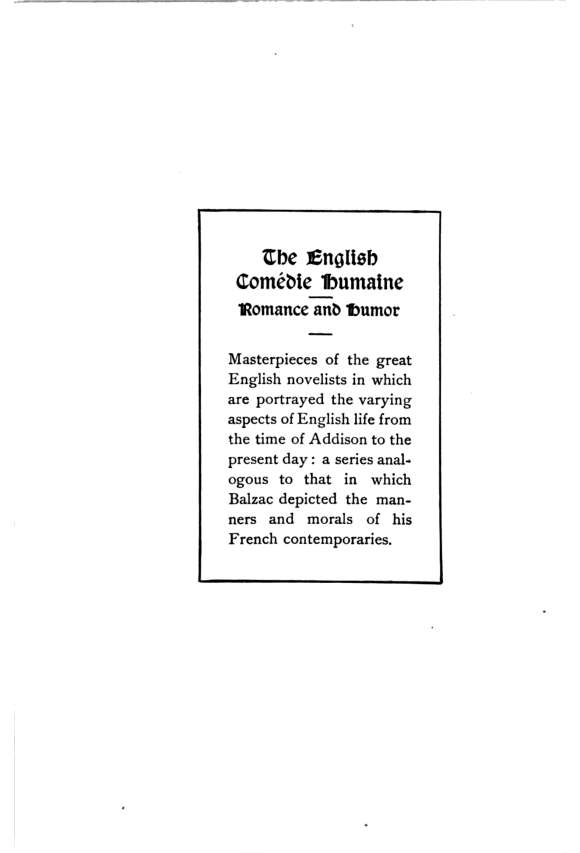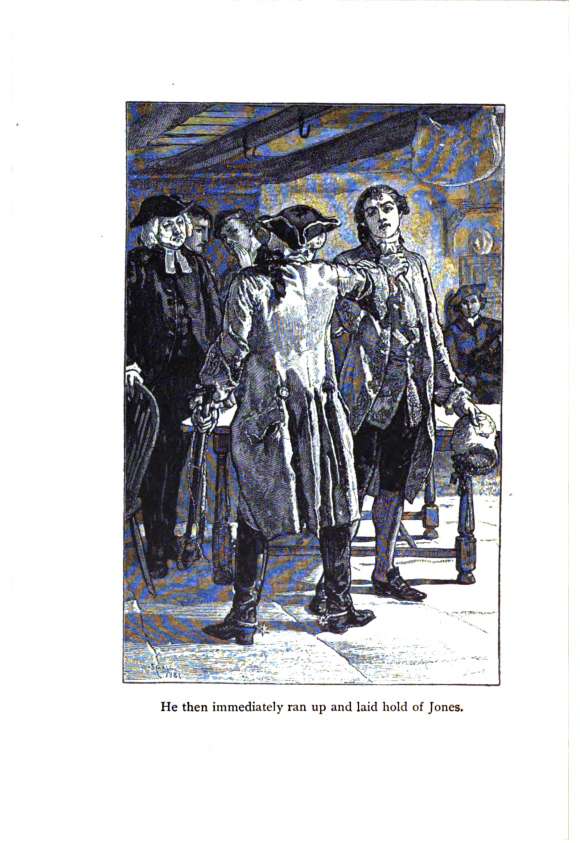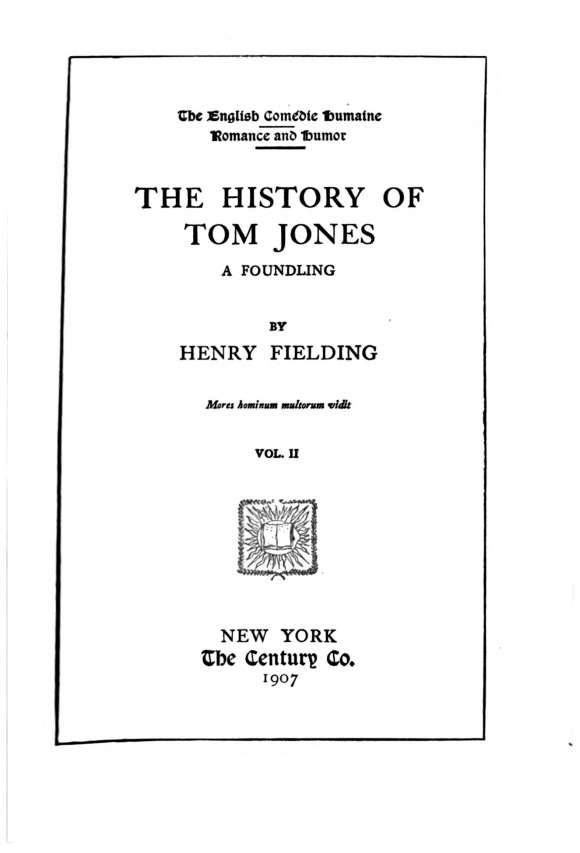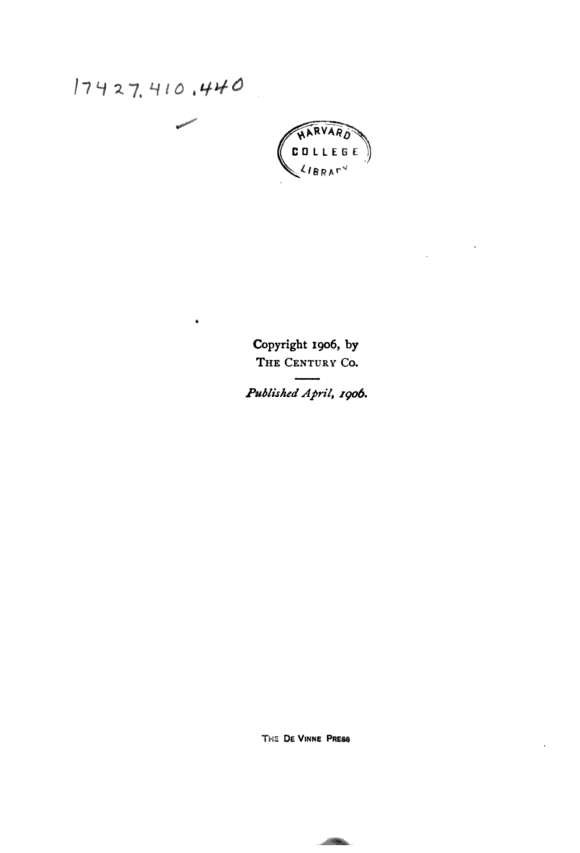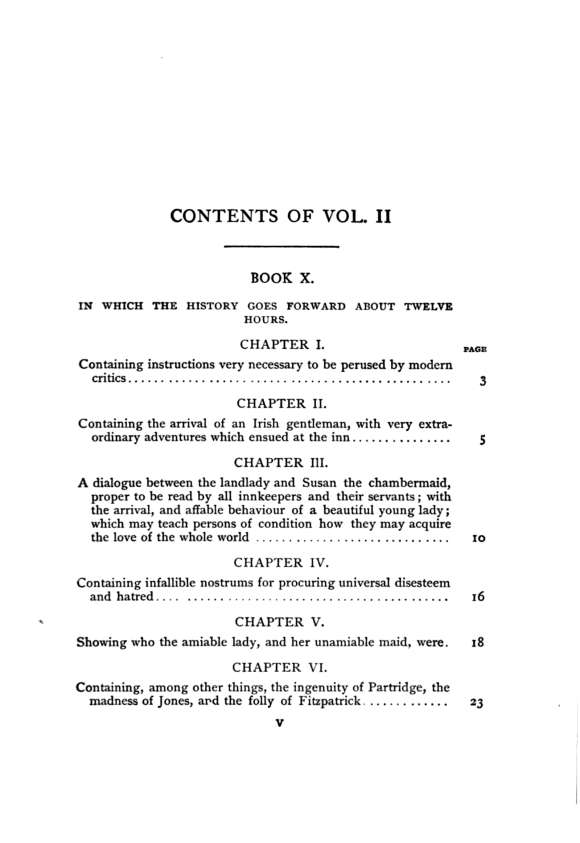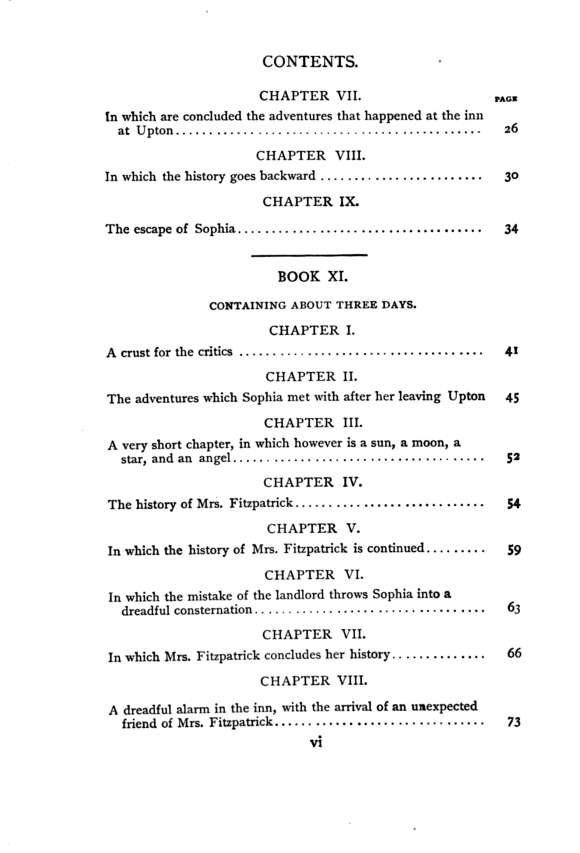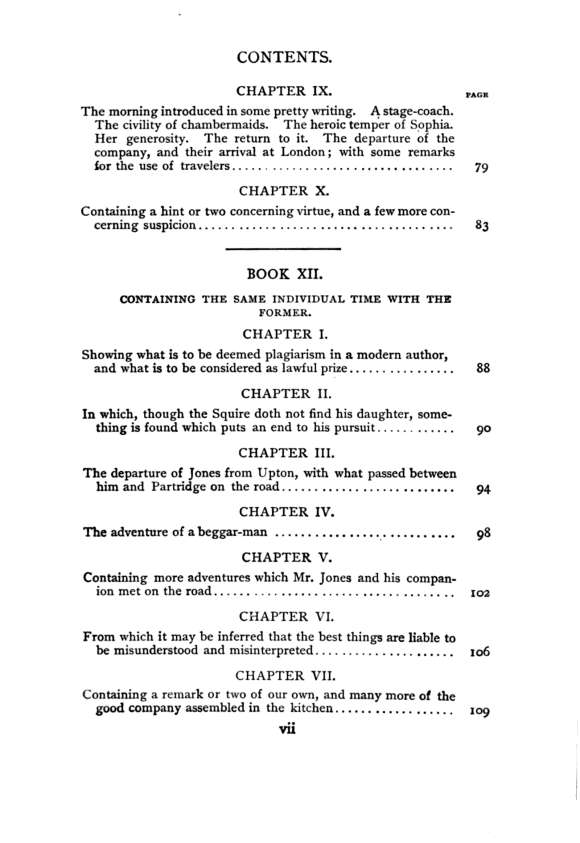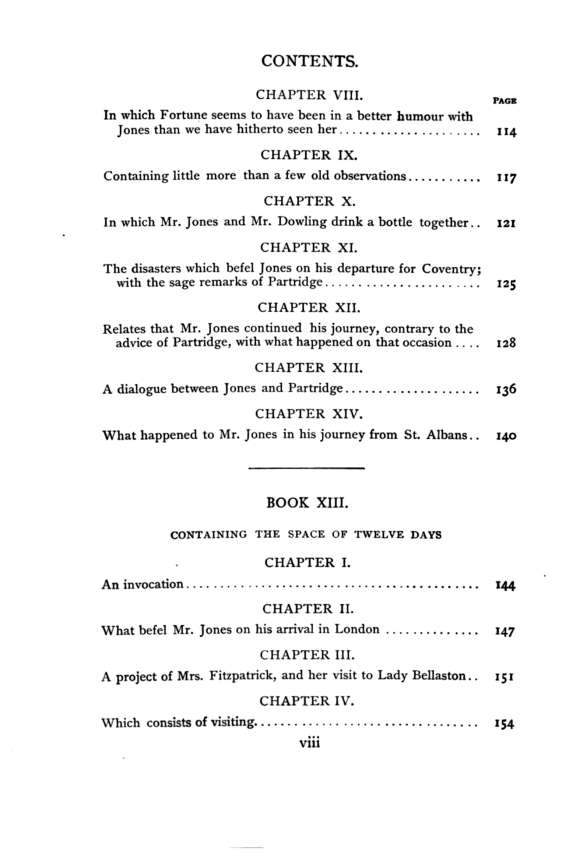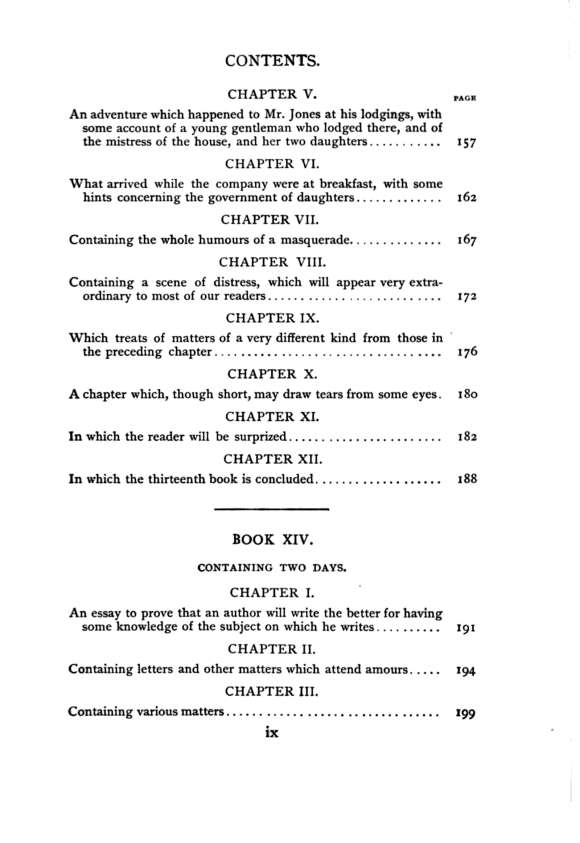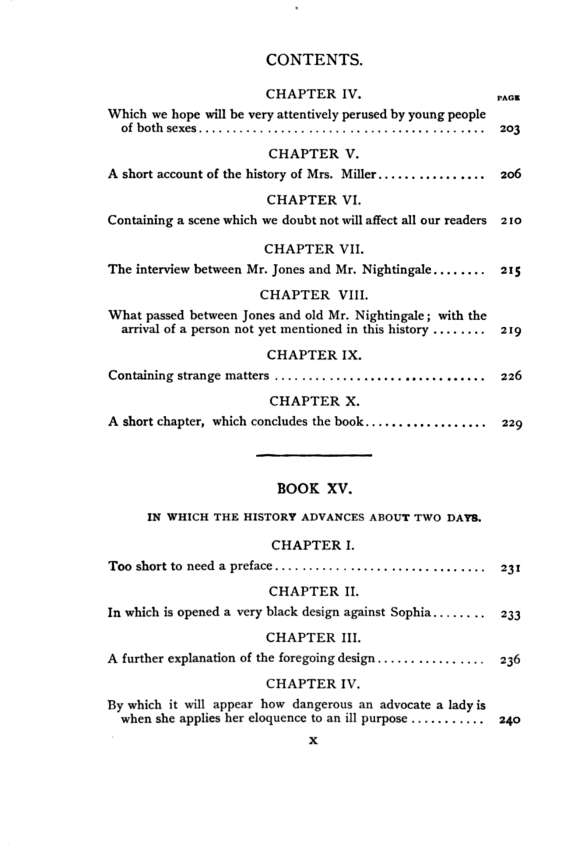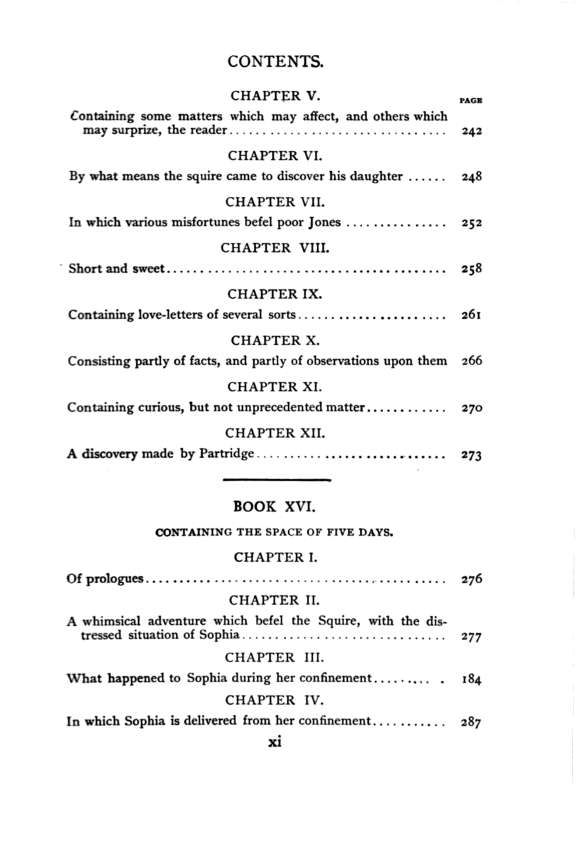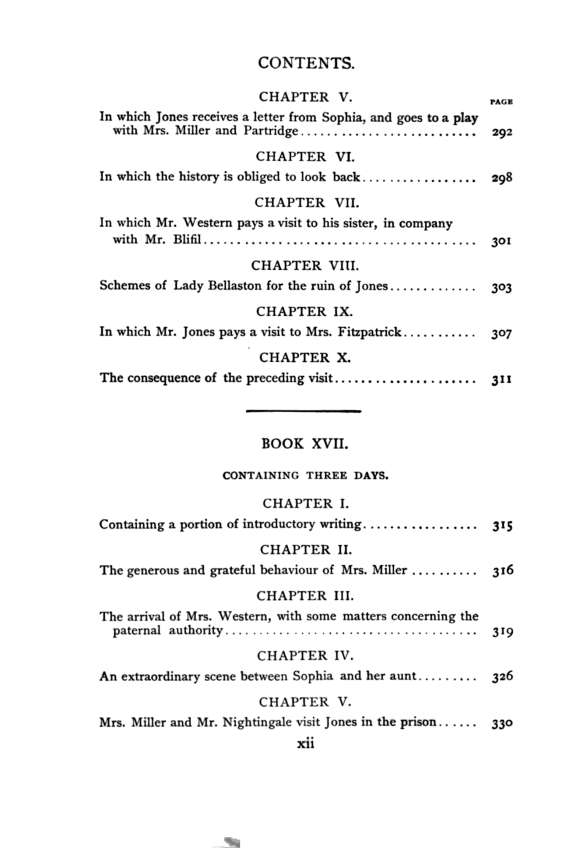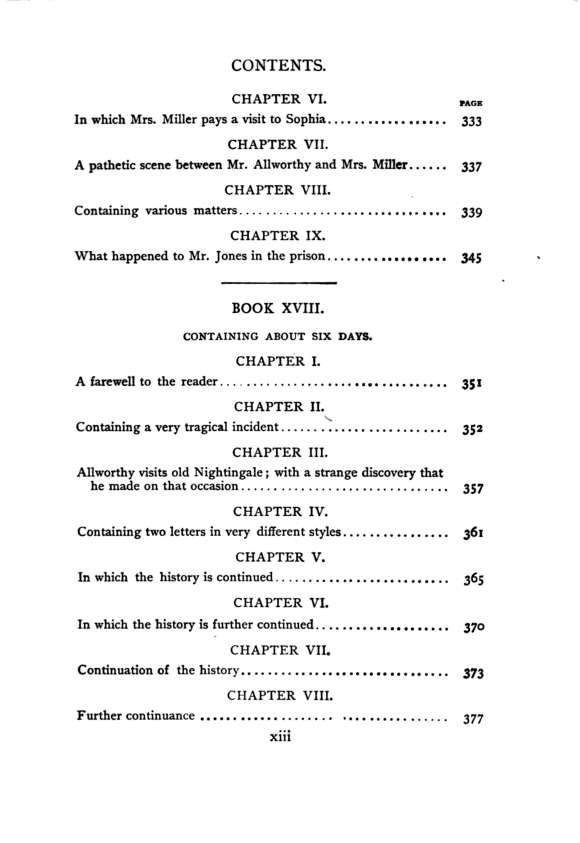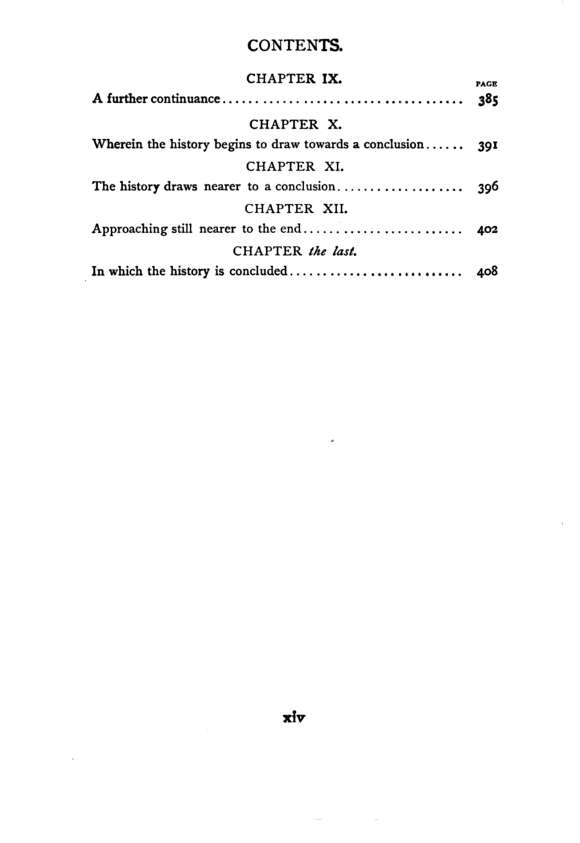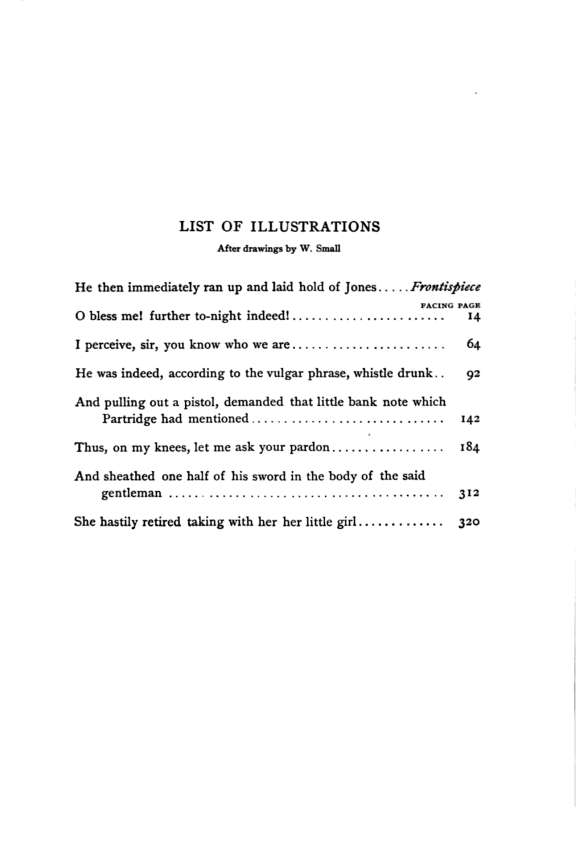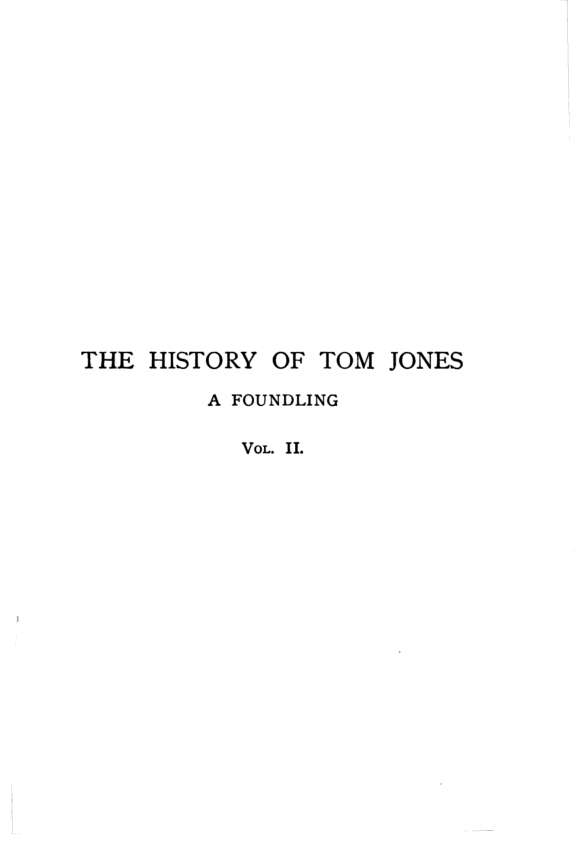The history of Tom Jones, a foundling
Henry Fielding
Google Book Search
This is a digital copy of a book that was preserved for generations on library shelves before it was carefully scanned by Google as part of a project to make the world's books discoverable online. See the back of the book for detailed information.
THE
HISTORY OF TOM JONES
A FOUNDLING
BOOK X.
IN WHICH THE HISTORY GOES FORWARD ABOUT TWELVE HOURS
CHAPTER I.
CONTAINING INSTRUCTIONS VERY NECESSARY TO BE PERUSED BY MODERN CRITICS
READER, it is impossible we should know what sort of person thou wilt be; for, perhaps, thou may'st be as learned in human nature as Shakspeare himself was, and, perhaps, thou may'st be no wiser than some of his editors. Now, lest this latter should be the case, we think proper, before we go any farther together, to give thee a few wholesome admonitions; that thou may'st not as grossly misunderstand and misrepresent us, as some of the said editors have misunderstood and misrepresented their author.
First, then, we warn thee not too hastily to condemn any of the incidents in this our history as impertinent and foreign to our main design, because thou dost not immediately conceive in what manner such incident may conduce to that design. This work may, indeed, be considered as a great creation of our own; and for a little reptile of a critic to presume to find fault with any of its parts, without knowing the manner in which the whole is connected, and before he comes to the final catastrophe, is a most presumptuous absurdity. The allusion and metaphor we have here made use of, we must acknowledge to be infinitely too great for our occasion; but there is, indeed, no other, which is at all adequate to express the difference between an author of the first rate and a critic of the lowest.
Another caution we would give thee, my good reptile, is, that thou dost not find out too near a resemblance between certain characters here introduced; as, for instance, between the landlady who appears in the seventh book and her in the ninth. Thou art to know, friend, that there are certain characteristics in which most individuals of every profession and occupation agree. To be able to preserve these characteristics, and at the same time to diversify their operations, is one talent of a good writer. Again, to mark the nice distinction between two persons actuated by the same vice or folly is another; and, as this last talent is found in very few writers, so is the true discernment of it found in as few readers; though, I believe, the observation of this forms a very principal pleasure in those who are capable of the discovery; every person, for instance, can distinguish between Sir Epicure Mammon and Sir Fopling Flutter; but to note the difference between Sir Fopling Flutter and Sir Courtly Nice requires a more exquisite judgment: for want of which, vulgar spectators of plays very often do great injustice in the theatre; where I have sometimes known a poet in danger of being convicted as a thief, upon much worse evidence than the resemblance of hands hath been held to be in the law. In reality, I apprehend every amorous widow on the stage would run the hazard of being condemned as a servile imitation of Dido, but that happily very few of our playhouse critics understand enough of Latin to read Virgil.
In the next place, we must admonish thee, my worthy friend (for, perhaps, thy heart may be better than thy head), not to condemn a character as a bad one, because it is not perfectly a good one. If thou dost delight in these models of perfection, there are books enow written to gratify thy taste; but, as we have not, in the course of our conversation, ever happened to meet with any such person, we have not chosen to introduce any such here. To say the truth, I a little question whether mere man ever arrived at this consummate degree of excellence, as well as whether there hath ever existed a monster bad enough to verify that


